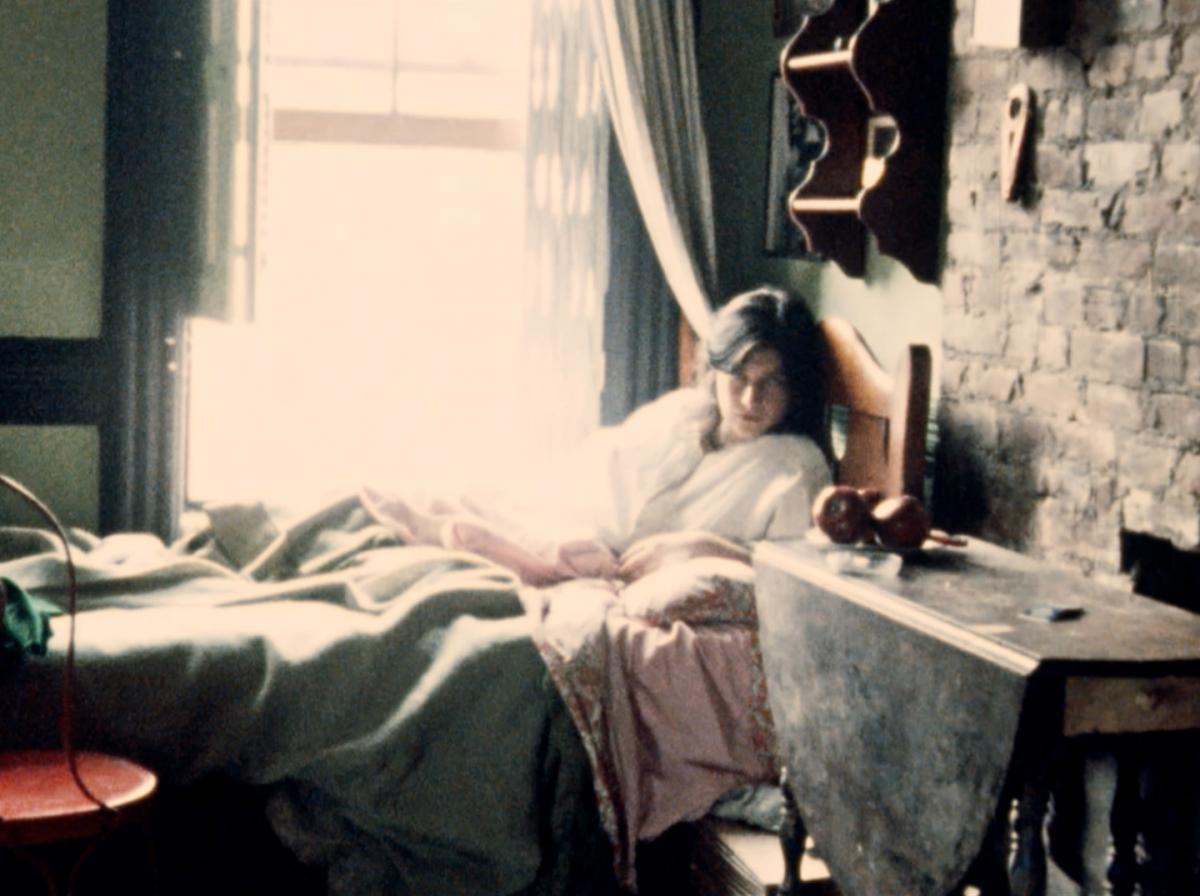The Day When...
A Film by Chantal Akerman

The day I decided to think about the future of cinema (unfortunately, not only that day), I got up on the wrong side of the bed. I poured grapefruit juice over an upside-down glass. I let the bathtub overflow. I knocked over my coffee with an ample gesture. I put my T-shirt on inside-out. I didn’t take my change when I bought cigarettes. I paid for my cigarettes and did not take them. I called my dog, who didn't come. I received a card for my birthday and cried. l answered the wrong phone when it rang. The “e” on my keyboard jammed and I thought of him, without remembering his name. Then I remembered his name is Georges Perec. Was he thinking of the future of literature when he wrote? I told myself he died because he smoked too much. I immediately stubbed my cigarette in my ashtray and, without further ado, I lit a second one. I called the friend who had sent me the card and got someone else on the line. I said: “I’m sorry, I haven’t woken up yet.” The day I decided to think about the future of cinema, I told myself I wouldn’t live to see it. I asked myself if the future is always in front of us. So I looked ahead, then I turned around. I wondered if the people who walk with their heads down have a sense of the future, or only those who walk proudly, heads high. I said to myself that, for me, the future was behind me, because one doesn’t say about someone my age that she has a bright future ahead of her. So the day I decided to think about the future of cinema, I got up on the wrong side of the bed. When you get up on the wrong side of the bed, you can’t think, and, even less, think about the future of cinema. When you get up on the wrong side of the bed, better not get up at all, not pour oneself a grapefruit juice (if there is any), not fill one’s bathtub, not make oneself coffee (if there is any), and, above all, not call one’s dog. When you get up on the wrong side of the bed, it’s best not to have your birthday, make phone calls, let alone think about Georges Perec and literature, and even less tell people you haven’t woken up yet. When you get up on the wrong side of the bed, you’d better go back to sleep again. If, by chance, you wake up and think, without thinking, of something happening to you, without processing it in your fully-woken head which forgets it has to think, you rejoice all of a sudden because you says to yourself that it may very well be that tomorrow, the day after tomorrow, or one of these days you will see something in the dark, and you will know it is a fine piece of cinema.
Voice-over by Chantal Akerman of Le jour où, a short film that is part of a collective film about the future of cinema, made for the 50th anniversary of the Locarno Festival in 1997. In an interview with Nicole Brenez in 2011, Akerman describes the film as follows: "Essentially, a tribute to Godard."
With thanks to Sylviane Akerman and Céline Brouwez.
This text is published in the context of Seuls: Short Work 1’, tonight at 20:30 on Avila. You can find more information on the event here.

